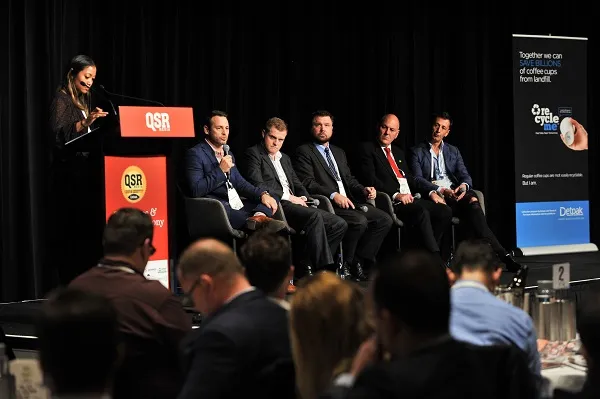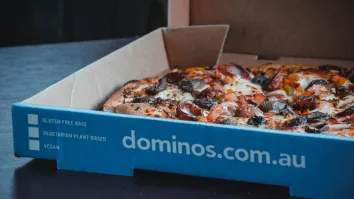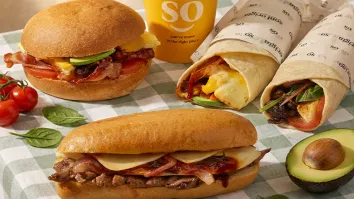
Hear what RFG, Subway, craveable brands., Minor DKL Food Group and Chatime have to say about transparency and profitability for franchisees
Industry leaders also provide their thoughts on brand innovation.
The troubled franchise sector should improve transparency models and focus on supporting franchisee profitability, according to a panel of brand executives during the 2018 QSR Media Detpak Conference and Awards.
“There are some critically important documents required in our industry – the most is the disclosure document however the level of detail can be cumbersome,” craveable brands. CEO Brett Houldin said, recalling that their own process in providing such across their business resulted in a 350-page document for franchisees.
“Not everyone might read it thoroughly, which then lends itself to people thinking that we aren’t sharing the right information later on or that we aren’t being transparent. I believe defining what the right information for franchisees, so they make the right decisions to be successful, is one area I would focus on.” he added.
Retail Food Group CEO Richard Hinson believes the sector needs to be “proactive” and “get ahead of the curve” in identifying problems for businesses.
“We are focused very heavily on rebuilding trust within our network and that's trust and transparency as much as anything else. We're heavily focused on communication and getting our franchise partners involved in some of the decision-making we're doing out there,” he said.
He adds that proper disclosure of information must be complemented with furthered support of franchisees – considering the increases in rent, insurance, administration costs among others.
“Disclosure documents and the level of information provided is critical but equally it's about the support that we provide those franchisees so there's a need for an increased element of support in this particularly tough retail environment that we're in. It’s on us as a franchisor that we get our franchisees through that challenge at a time where prices are not keeping up necessarily with the inflationary pressure of those elements.”
Some panel members also asserted franchise economics as a vital component in improving the retail landscape.
“We think a lot about building brands that are relevant and distinctive and attract customers because we need top line growth above all else. The second part is franchise economics and engagement –making sure that we engage our franchisees and have had a model that's sustainable for them and delivers us long-term economic return,” Minor DKL Food Group CEO Nick Bryden said.
Subway vice president for international Ian Martin added: “I think as an industry, franchise partner selection is one thing. The second component that goes hand-in-glove is restaurant economics. We as the brand owners need to ensure that [each of] our networks have the fundamental economics.”
“I think that one of the first things as a franchisor is to ensure the economic success of the franchisees. I welcome the sort of inquiries that we've been having around the franchise sector for quite some time now because as franchisors or trying to be best in class [and] trying to improve systems, it has actually opened up a conservation relation to ensuring [if] we have enhanced visibility of franchisees' profitability. I would suggest that as a system, we haven't,” Chatime Australia general manager Carlos Antonius remarked.
Their comments come amid a Senate inquiry on the effectiveness of the Franchising Code on Conduct following varied accusations of misconduct against larger retail networks.
Going back to the fundamentals
Touching on the subject of innovation, some panel members stress that the concept goes beyond a limited-time offer (LTO). Martin says Subway is looking to distance themselves from what he calls as a “LTO-driven” focus of “just bringing stuff.”
“I equate [it] to throwing spaghetti on the wall and hoping that there's a good idea. Some work, and you go ‘Wow, so it does work and guess what – I need to do another one.’ rather than going back and looking at the fundamentals. From a food perspective, we’re working on improving the quality of our ingredients,” he said.
Bryden surmises that the sector is “guilty of not being innovative as we should have been.”
“To Ian’s point, I think the industry here has held on too long to the idea that innovation comes in the form of a new LTO. Innovation for us is really driving customer experience for them that they find compelling, that they can trust. Innovation comes from within: making our processes internally faster, more agile, more nimble."
Hinson, while expressing the desire to pursue digital loyalty, also explains the group’s “old-fashioned” in-store strategy by going back to basics.
“Innovation in this space for me is a bit of a ‘Back To The Future’ stuff. At the end of the day, we’re in retail and you have a product to sell. In our legwork, we’re paying a hell of a lot attention to how to bring back some of the old-world retail skills, how do we merchandise our cabinets better, how do we get the quicker, easier solutions for our products so its low-cost on display.”
“Digital is only good enough to get people to the front of the shop. If your staff aren’t servicing them properly, doing all the old fashioned customer service approaches and not having products in display that entices them to buy then we're kidding ourselves,” he concludes.
























